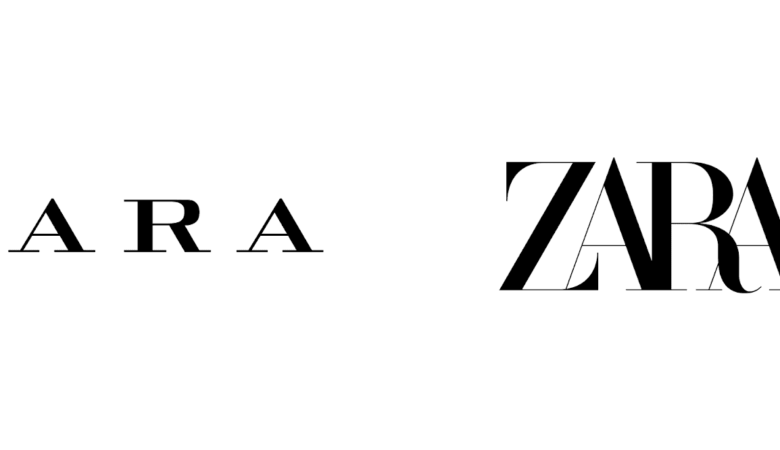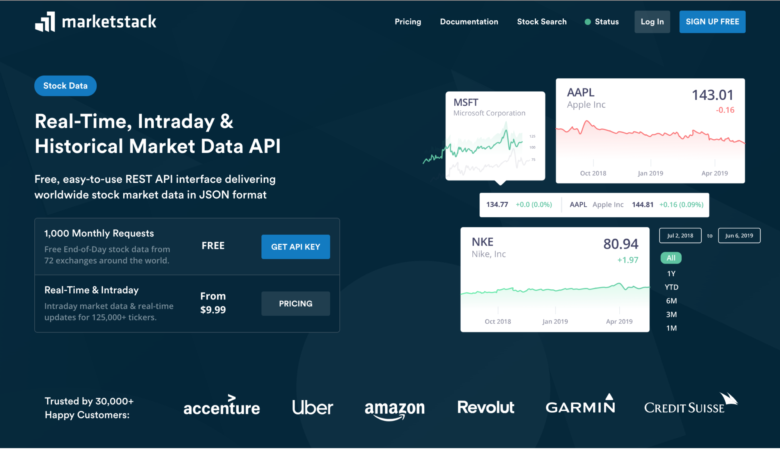The world of digital design is full of both young and experienced talent. Freelancing has slowly become a more affordable career path for many web designers and developers. But it’s not enough to just create pretty websites in HTML/CSS. You also need to have some sense in marketing a business!
There is a thin line between the responsibilities of a web designer and a freelancer. Some overlapping examples between the two jobs are design skills like Adobe Photoshop, Dreamweaver, and JavaScript. But you’ll also need to understand client relationships, basic time management, project organization, and a few other corporate-class ideas. It can be a tough, but I hope these tips will help you juggle the numerous tasks assigned into the freelancing world.
Never Overload Yourself
This is a big lesson which takes some practice before you can understand. Many young web designers are often eager to jump into the freelancing business and start earning money. Over time you pickup project after project, and soon you’ve got no time left for yourself. It’s a self-defeating cycle of endless stress.
You need to figure out what is realistic to accomplish in any given day/week/month. Each person’s schedule will be different depending on their obligations. But we can all find time for work, even just hours a day. So it’s only a matter of planning out a proper to-do list.
Manage what you can at first and slowly increase your workflow as time goes on. I started freelancing with 1-2 web projects per month and slowly moved up from there. This process gets easier as you meet more people and build credibility for your name. But you have to know when you’ve reached your limit and learn to say “no” – even when the additional work & money is tempting. It’s not worth the strain on your mental health and some clients will be understanding in waiting a few weeks for your services.
Practice New Skills
It’s important to prioritize your design skills first above all else. Working freelance is a privilege compared to the routine 9-5 lifestyle. As time pushes forward you may become complacent with such a schedule. But try to keep your passion for design in check and held at the utmost importance.
Each of us is coming into the web design field with a different skillset. Most beginners already understand HTML and even a small amount of CSS. It’s important to keep on practicing these languages even if you are well-versed.
The industry is always advancing, so there’s likely new trends to pick up on. And if you grow tired of the easy stuff why not challenge yourself? Try to master a new skill such as Adobe Photoshop, Illustrator, Fireworks, or even another language such as JavaScript. The HTML specs have also introduced new media elements such as native video/audio components.
Staying on top of your game will keep you ahead of the competition and surely improve the quality of your portfolio. It can become a distraction if you have too much work on your plate. So make sure between client work you take at least a few hours to brush up on some interesting topics. I prefer to spend a day or two researching into new ideas I’ve never studied before. This opens me up to a deeper understanding of web design which I can apply to future designs.
Work Out Steady Pricing
How much you charge on any given project will greatly reflect upon your experience. It’s crucial that you can pay bills at each month’s end! Managing your earnings can be an exhilarating process to some, much nicer than the cut-and-run weekly paycheck. You gain leverage and control over your financial life in areas many haven’t experienced before.
But don’t obsess over your prices and payment methods for too long. Clarify upfront with each client how much you’ll be getting paid and through which method. This pushes all the business talk out of the way so you can jump right into the design work. At the end of your day it may be wise to go over each contract again – possibly a 5-10 minute rundown on your current status.
Relationship Building
We all know how important networking can be in the business world. Ultimately it’s who you know that will help you succeed and make a name for yourself in the design industry. You must spend some time networking your brand and getting your portfolio links out there. E-mails, social networks, online forums, and job boards are just a few places you can start out.
You don’t want client work to become an annoying chore in your day. Keep a healthy relationship with all your contacts. If your work is good, they will most likely come back for any future design needs. And positive word-of-mouth references are always helpful towards gaining steady business in the future.
How people find your work will greatly impact their first impressions. Make sure you present yourself in a compassionate and professional manner. You’ll impress even the toughest clients and make a strong name for yourself.
Focus on Individual Tasks
The months may grow overwhelming as your work piles up. Don’t let your focus wane too much off course, or you’ll find it difficult to get anything done. I find it helpful to break up the day into segments of focus. You could start with design and web layouts for a few hours, then switch to coding, and finally end with e-mails and other paperwork.
This is just one loose example schedule, but you should feel out whatever works best. The ability to hold a solid focus for a few hours is crucial – even if you end up switching between different tasks over time. Ultimately you should be able to reflect on each day and feel at ease with the amount of work accomplished.
Conclusion
I hope this article can reach even a few aspiring freelancers. The career path can be stressful at times, but also extremely rewarding. You set your own hours and have the freedom to work with anybody you choose! The growth process is exhilarating, especially for graphic & web designers. If you have your own freelance management tips feel free to share with us below in the discussion area.











This is an extremely useful article for anybody going it alone- many of the points can be applied to every freelance trade- not just web design.
I would like to add something to #1: Never Overload Yourself. Never say “no”, but explain how in demand you are and offer the client a date which you can start their work. This is a much more positive way of working: simply saying “no” is too negative and can annoy, but offering a date is constructive and a client will think “if this guy’s so busy, he must be good!” And it’s always good for a client to think that 🙂
Nice comment. i think this is a better way to do that!!
Interesting article. A good description of this particular job. I find it important to plan the work without exaggeration. Study and update forever. Better understand the client and its target. Always. Although we are in difficult times and “where circulates not more money”. Thanks for sharing.
Thanks! Really good tips, I’m hoping to go freelance around 2014 I’ve finished higher education and been working for a graphic / web design company for 2 years now – Hopefully 2014 I’ll be in a position where I can start working for myself. =]
Chard.
this is a great post! thanks for sharing. I have found myself doing most of the steps/tips mentioned above, which help a lot! Once you begin getting work, and making a name for yourself, more work will come in, and word of mouth is invaluable. Do good work, and people will be more than happy to mention your name to friends and family, which in turns bring on more clients! Great resource!
Great advice, Jake. I definitely agree with your point about challenging yourself with new programs and languages.
Working out steady pricing is huge. So often we tend to price differently based on the client and that’s a big mistake. If they are cheap, stay away!
Honestly, being a business owner isn’t all it’s cracked up to be. It takes a special kind of person to want this kind of life! I have a friend who does freelance, solo work and makes a fortune without all of the headaches involved with running a business and managing employees.
Well you know, there are different business models out there and your friend is a business owner, being a business owner does not nessisarily mean having a bunch of employees
My question is- How can I get more clints?!? I really love desing, and trying to advertaise my self in facebook, having my wesite and getting good feedback, but still… 🙁
You just need to keep marketing and don’t give up! If you practice every day your skills will improve with time. as you build up a portfolio more clients will notice you and your talent. All it takes is time and dedication 🙂
You have to get used to being alone a lot. Sometimes you lose the power of meaningful speech. But it does empower you with a sense of freedom too. It depends what you’re like.
Pricing myself as a designer is admittedly an area I’ve had some serious problems. I’m still not entirely sure what my work is worth, and don’t have much of a portfolio. I have solid skills, but a modest attitude. If I don’t shape up and start marketing myself better and getting more clients, it’s gonna kill me. 😛
Such a great article. Another thing I would add is to continue to market yourself. Keep up to date with your portfolio and growing your brand image.
Excellent post — you nailed it on the head. There are so many different skills needed in this role….
Every word rang true. I would add something about pricing, which as been a problem area for me.
Great article! I’ve been a freelance designer since 2000 and must say handling multiple projects can be very stressful but agree with blocking off sections of time for each project. Marketing yourself is crucial for sustaining your business. Most of my new clients come from SEO and newsletter marketing however after many years I often get referrals from previous clients. Another suggestion is to build a passive income of your own (ie web hosting, your own information products) to supplement your income in those slow times.
Something I would add to focusing on one thing for a few hours is that you should map out what needs to be done for the week and then split everything up. Once you deal with a bunch of clients at once you need to make sure that you always know exactly where you are.
Other than that, track your finances regularly because they tend to pile up and turn into one huge task if you don’t.
Also if you do end up employing people, make sure they know exactly what they need to do every day and be hard on them if you must, otherwise they end up hanging out on facebook all day. I found out the hard way.
Great article by the way 🙂
This is an excellent article… Marketing yourself is of vital importance! Find businesses in your area through Google or another search engine and see if they have a website, approach them and give them a proposition. While approaching potential clients, work on your marketing pitch. You can always tune up your intial approach to clients. Facebook is okay, but there is another world outside of Facebook. Learn SEO and include that in with your pricing to make your business look more attractive. Throw in 250 free business cards!
As the article stated work on some other aspects of design, such as Photoshop or InDesign. To be honest Photoshop and Webdesign go hand in hand. So many headers and different aspect of a website are built and sliced in Photoshop and transferred into your web design. Don’t be one deminsional!
Absolutely spot on!!! love this article especially the point about not over loading yourself.
I am going through the process now of trying to work out what I can manage in what time frame. I’ve been looking for that magic trick that will help me accomplish this and your answer gave me hope, it’s all up to me, no program, no app will help me organise my time wisely. I think I am actually getting better at it though! and yes it’s a slow process.
I LOVE being a freelancer/business owner/designer but man it’s exhausting!!!
Hey jake,
It’s very helpful article for the beginners and experienced in web design/development field.
Thanks keep writing in future….
Freelancing is a business in itself. There’s time management, client management, finances etc, basically all the bells and whistles needed to run any operation. The only difference is whether you do it full time or not. The issue with non-full timers is that, they often do it just for the extra money and get complacent with important things like client follow up and attention to details. Gives the rest of those in business a real bad name. That’s because they don’t respect it as a ‘real’ business but more of a sideline kind of thing.
This article applies more to those who take the business seriously and are out to carve themselves a living doing it full time.
As a web designer, its 2nd nature to us improve our skill set. We all crave on learning new web design tricks and trends. On this blog post, relationship building is, I think the most important part as a business owner. Most of us fail to deliver good customer service to our clients. Everything boils down to awesome product plus customer service.
I think you’re right when you say: “Working freelance is a privilege compared to the routine 9-5 lifestyle.” Freelancing is a great opportunity to focus on how you can make a difference through what you love doing in a way you love to work. Sure, it’s a lot more work but as you say, it is a really rewarding and life-changing experience. Great post! 🙂
This article is so true, and it’s great to see there are like-minded individuals who are in the same boat. It gets difficult trying to be a website designer, your own business administrator, marketer, networker, sales, contract designer, social media manager, tax professional, and the list goes on… but it’s like Sanj has said, it’s rewarding when you’re making a difference through what you love doing. It takes a great multitasker, and a diligent, dedicated person to be a freelancer or (1-2 person) business owner.